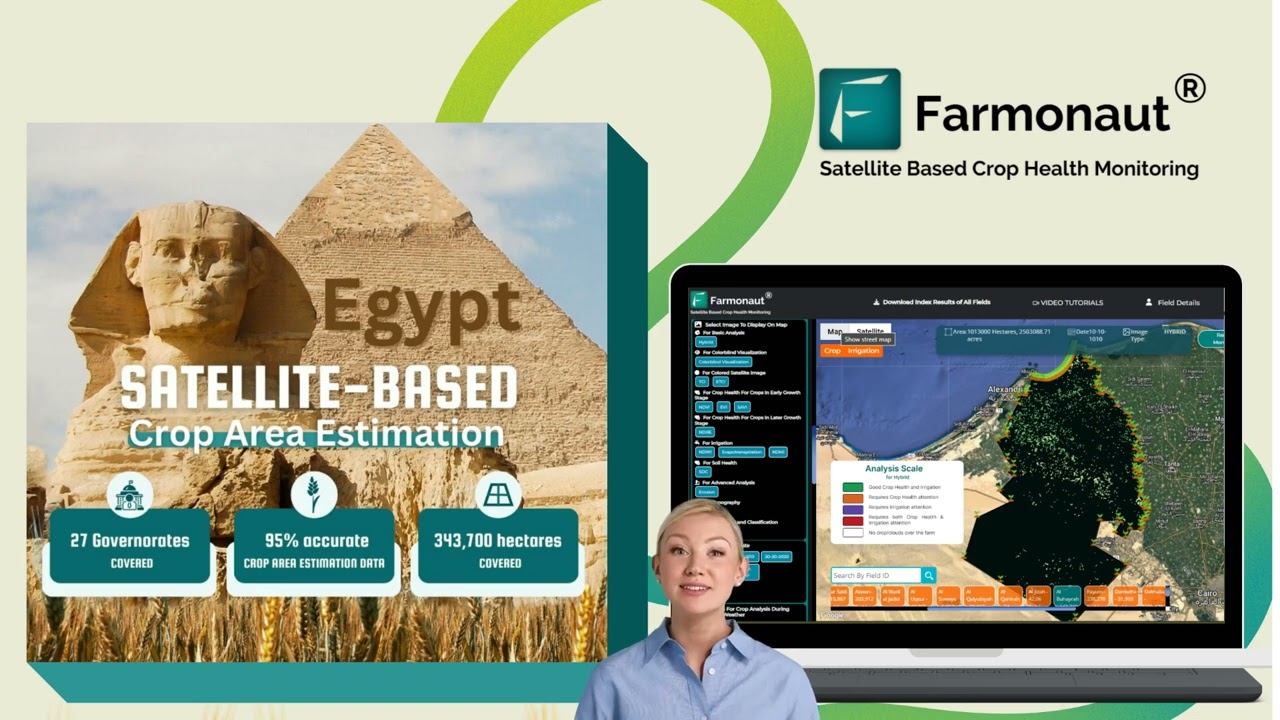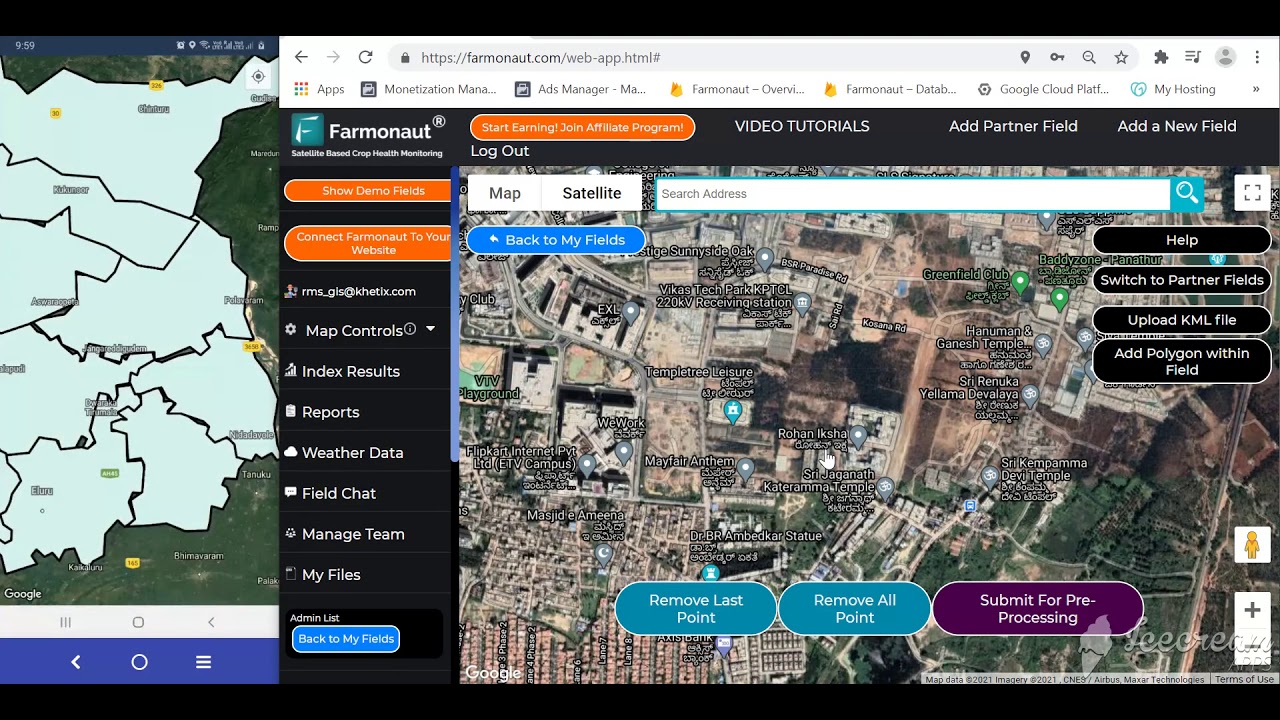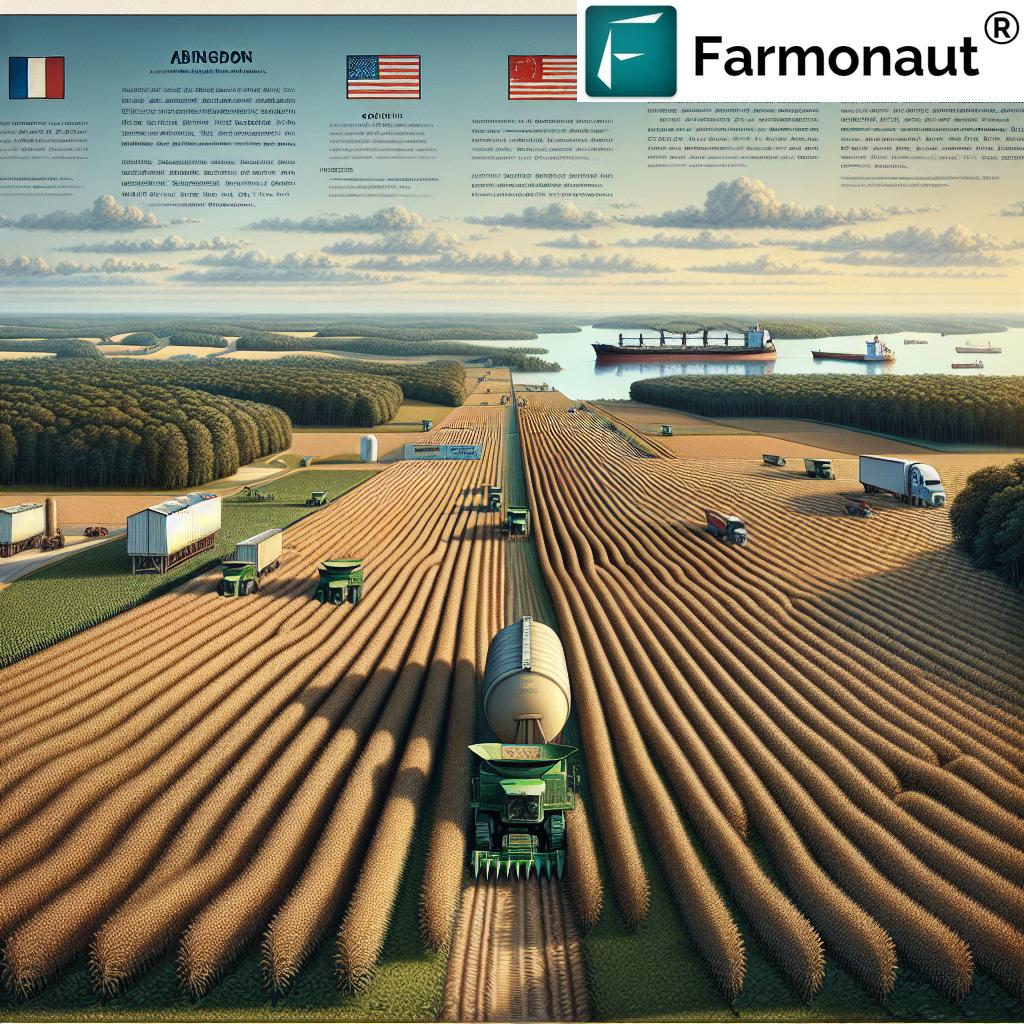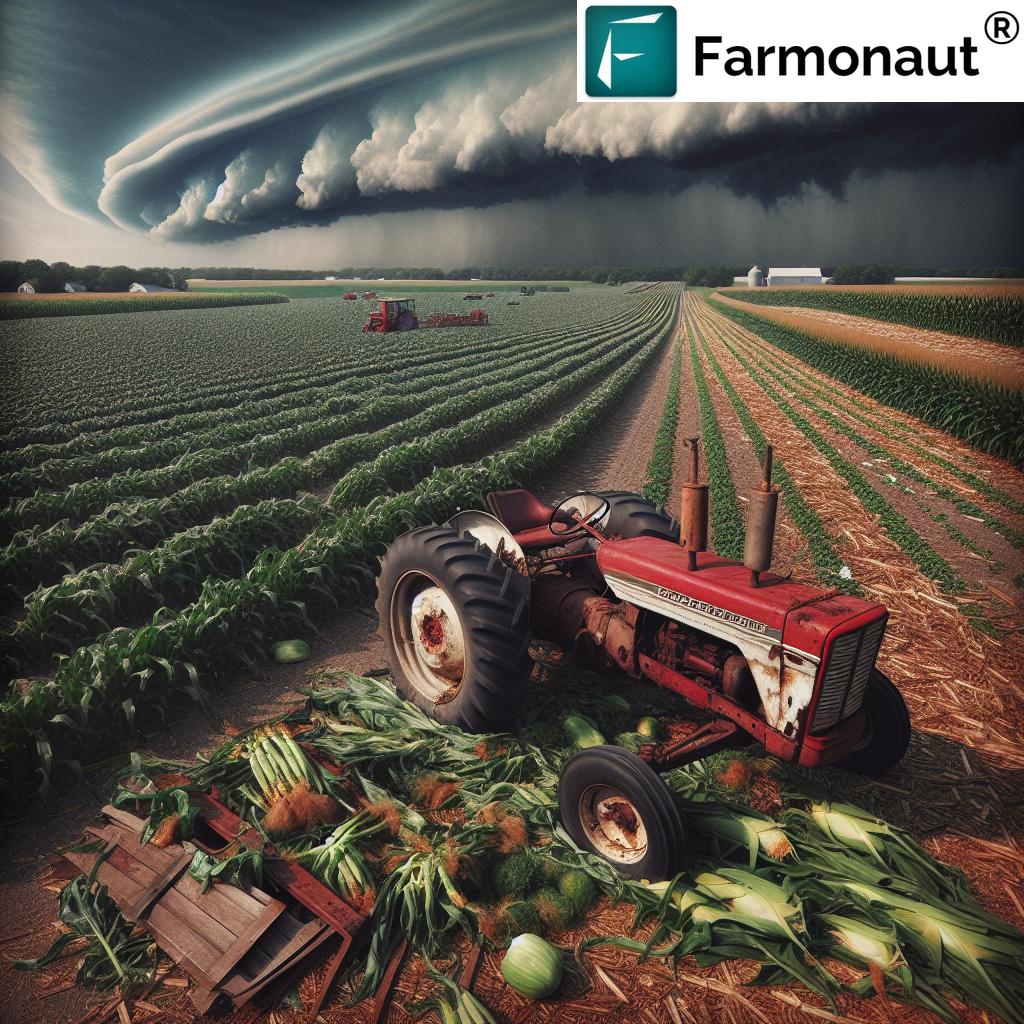Local Food Access: 7 Powerful Urban Farming Initiatives in Lakewood
“Lakewood’s urban farming initiatives have increased local food access by 35% in just three years.”
Table of Contents
- Introduction: The Power of Urban Farming in Lakewood
- Changing Local Food Access: Why Urban Farming Matters
- 7 Urban Farming Initiatives Redefining Community Supported Agriculture
- Comparative Summary Table: Lakewood Urban Farming Projects
- Overcoming Barriers: Affordable Farmland, Training, and Mentorship
- Fresh Produce Markets and Community Impact
- Sustainability in Action: Innovative Farming Practices
- Supporting Urban Agriculture with Next-Gen Technology
- Farmonaut: Enabling Data-Driven, Affordable, and Sustainable Farming
- Farmonaut App, API, and Developer Tools
- Frequently Asked Questions (FAQ)
Introduction: The Power of Urban Farming in Lakewood
Local food access is rapidly transforming the way we view agriculture, urban land use, and community empowerment—especially right here in Lakewood, Colorado. In a city better known for its vibrant neighborhoods and scenic parks, urban farming initiatives are quietly, and powerfully, reshaping our access to nutritious, locally grown food.
A shining example: on a rented backyard plot, Lakewood farmer Stacey Dunn is redefining modern agriculture. Through small-scale projects and innovative arrangements—such as exchanging fresh produce with a homeowner for land—Dunn represents a growing movement of urban farmers who are removing barriers for aspiring growers, enhancing our community’s food security, and ensuring that the fruits of sustainable farming remain close to home.
Driven by organizations like GoFarm—a Lakewood-based nonprofit—these initiatives bring together mentorship, training, and resource access. They demonstrate the potential for community supported agriculture and offer reproducible models for cities everywhere seeking to enhance local food access, foster economic resilience, and lighten our environmental footprint.
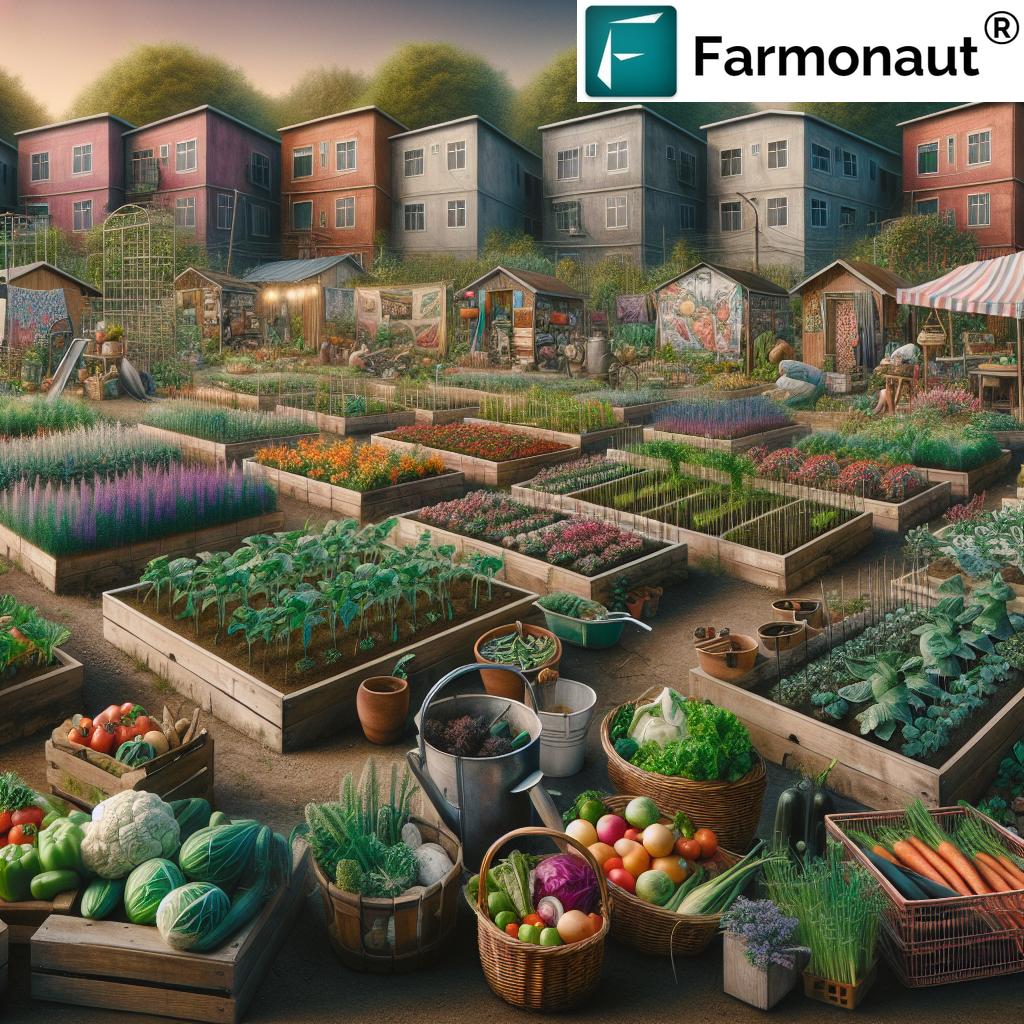
Changing Local Food Access: Why Urban Farming Matters
We believe our communities thrive when everyone enjoys equal access to fresh, nutritious food. Urban farming initiatives in Lakewood don’t just grow vegetables and flowers—they nurture local economies, encourage sustainable farming, and break down socio-economic and logistical barriers to food security.
- Boosting Fresh Local Produce: Grown nearby, harvested at peak nutrition, and delivered directly to markets and families.
- Empowering New Farmers: Through mentorship programs and the sharing of tools and knowledge.
- Utilizing Underused Land: From backyard plots to urban vacant lots, every piece of land offers opportunity.
- Supporting the Local Economy: Keeping resources circulating within our own neighborhoods.
- Reducing Food Miles: Lowering emissions by eliminating the need to import produce from distant states or even countries.
This shift towards sustainable farming practices and local sourcing not only enhances lakewood’s food accessibility, but also lays the groundwork for a truly resilient future.
“Seven urban farms in Lakewood collectively support over 2,000 community members with fresh, sustainable produce annually.”
7 Urban Farming Initiatives Redefining Community Supported Agriculture in Lakewood
Let us take an in-depth look at the seven powerful projects leading the way in urban farming initiatives and local food access enhancement here in Lakewood. Each is uniquely structured yet united by a common drive: to cultivate sustainable food systems that eliminate barriers and foster connection.
-
GoFarm Incubator Program
At the forefront is GoFarm—offering aspiring farmers a supportive network, beginner farmer mentorship programs, training, and access to crucial farming tools. Their incubator program removes the often daunting challenge of land access, especially when affordable farmland is scarce in urban areas like Lakewood.
- Main Barriers Addressed: Land, knowledge, capital.
- Impact: Local, sustainable produce available in multiple neighborhoods and at the Golden Farmer’s Market.
- Unique Feature: Empowerment through training and resource sharing.
- Fresh Produce: Vegetables, herbs, flowers.
-
Lakewood Backyard Growers Network
This grassroots network encourages residents to transform their own backyards into highly productive vegetable gardens or micro-farms. By sharing best practices and seeds, they create a true collaborative spirit among neighbors.
- Main Practices: Companion planting, organic pest control, crop rotation.
- Impact: Increased household access to nutritious food; surplus is shared locally.
- Unique Feature: No-cost or low-cost land solution via backyard exchange agreements.
-
Urban Harvest Lakewood
Focused on fresh produce markets and education, this initiative regularly organizes pop-up farm stands and nutrient workshops. Urban Harvest invites urban dwellers into the world of small-scale growing while ensuring that produce remains affordable for all.
- Main Barriers Addressed: Cost, consumer awareness, distribution gaps.
- Impact: Accessible food for underserved communities.
- Unique Feature: Mobile vending, outreach to food-insecure neighborhoods.
-
Community Supported Agriculture (CSA) Collectives
In Lakewood, several CSAs allow us to subscribe for a regular share of seasonally grown vegetables and flowers, further localizing our food choices while directly supporting farmers.
- Main Barriers Addressed: Retail distribution, seasonal shortages, consumer connection.
- Community Impact: Stable income for growers; predictable, nutritious supply for families.
- Exchange Arrangements: Some offer volunteer hours in lieu of cash payments, enabling greater access.
-
Lakewood School & Youth Gardening Alliances
Our local schools and youth groups are increasingly growing food as part of sustainability curricula and summer programs. These collective gardens teach children about sourcing, climate resilience, and food system equity, all while improving nutritious food access for students and families.
- Main Practices: Project-based learning, plot adoption, climate-adaptive varieties.
- Community Impact: Environmental education and improved cafeteria offerings.
-
Lakewood Gleaners: Reducing Waste, Enhancing Nutrition
This volunteer-led initiative collects surplus from backyards, orchards, and farms, then distributes the fresh produce to local food pantries, shelters, and meal programs—ensuring no edible resources go unused.
- Main Barriers Addressed: Food waste, hunger, distribution inefficiency.
- Estimated Yield: Thousands of pounds saved from compost or landfill each growing season.
-
Mobile Markets & Food Hubs
Rolling out fresh, affordable produce via mobile vans or pop-up stalls, these programs bring the market directly to senior centers, apartment complexes, and low-resource neighborhoods, further eliminating barriers for farmers and consumers alike.
- Main Practices: Direct purchasing from local farmers, value chain integration.
- Community Impact: Broadens year-round access to nutritious food.
- Unique Feature: Regular stops to maximize market reach.
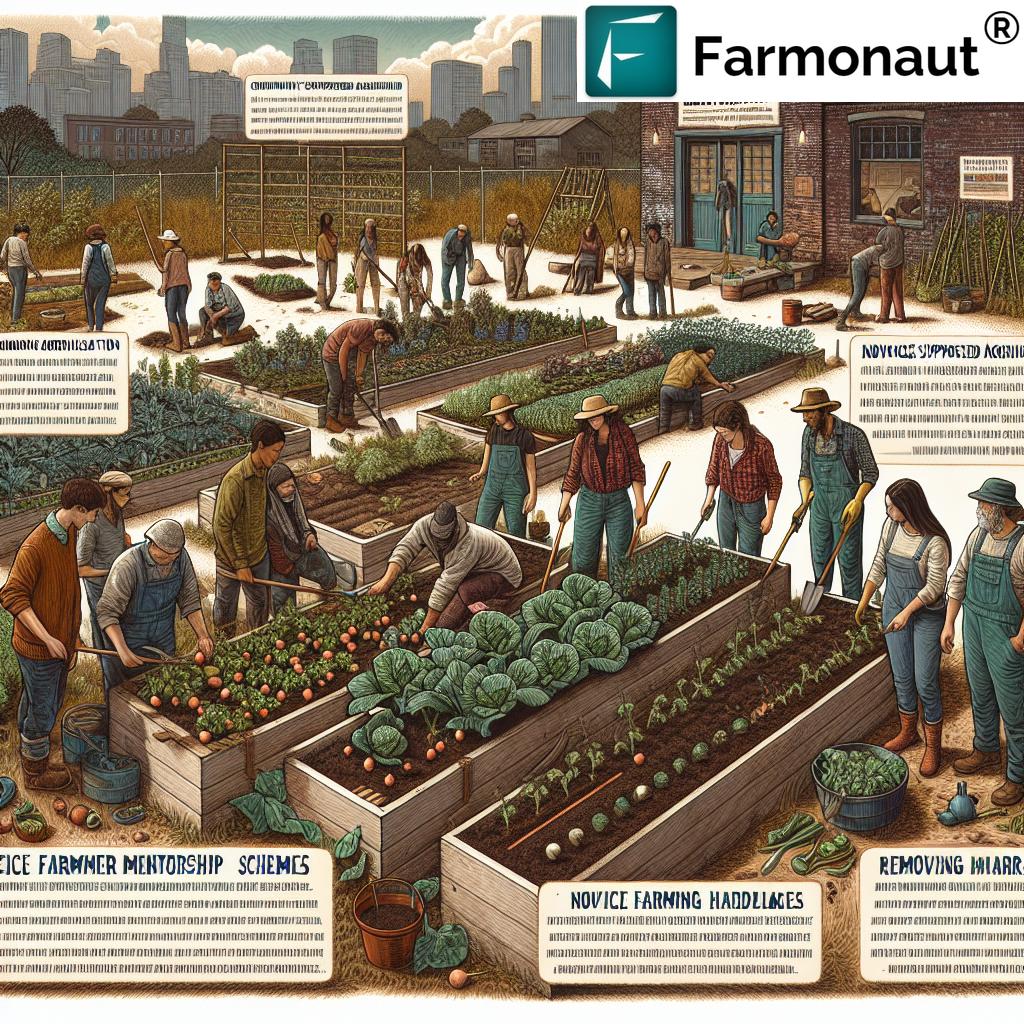
Comparative Summary Table: Lakewood Urban Farming Projects
We’ve summarized Lakewood’s top urban farming initiatives side by side, so you can discover how each is enhancing local food access, supporting sustainable practices, and improving community well-being.
| Initiative Name | Location | Year Established | Main Produce/Practices | Estimated Annual Yield (kg/year) | Community Impact (Residents Served) | Sustainability Features |
|---|---|---|---|---|---|---|
| GoFarm Incubator Program | Various Backyard Plots, Lakewood | 2021 | Vegetables, Flowers, Mentorship | 4500 | 430 | Organic, Water Conservation, Tool Sharing |
| Backyard Growers Network | Private Yards, Citywide | 2019 | Vegetable Gardens, Companion Planting | 3200 | 390 | No Pesticides, Seed Saving, Composting |
| Urban Harvest Lakewood | Community Lots, Markets | 2020 | Tomatoes, Greens, Mobile Markets | 2300 | 290 | Pop-Up Stalls, Outreach to Low-Income Areas |
| CSA Collectives | Multiple Neighborhoods | 2017 | Mixed Seasonal Produce | 5900 | 640 | Shared Labor, Organic Practices |
| School & Youth Gardening Alliances | School Grounds, Community Centers | 2015 | Educational Plots, Herbs, Small Vegetables | 1900 | 210 (Students & Families) | Rainwater Harvesting, Climate-Resilient Varieties |
| Lakewood Gleaners | Orchards, Private Yards | 2018 | Fruit Gleaning, Produce Redistribution | 4100 | 330 | Volunteer-Driven, Food Waste Prevention |
| Mobile Markets & Food Hubs | Citywide Routes | 2022 | Mixed Produce, Outreach Services | 3800 | 330 | Mobile Distribution, SNAP/WIC Acceptance |
Explore the Future: Satellite Agriculture & Urban Farming in Action
Overcoming Barriers: Affordable Farmland, Training, and Beginner Farmer Mentorship Programs
Securing affordable land remains the main barrier for new urban farmers in Lakewood. Traditional farmland is scarce and expensive in most urban areas, so creative solutions—like swapping produce for the use of a rented backyard plot—are key to growing food in urban areas sustainably.
Our local programs address these challenges by:
- Offering mentorship and access to farming tools.
- Connecting aspiring farmers with homeowners for unique land use arrangements based on mutual benefit and collaborative spirit.
- Providing practical training – from soil health to business planning – for participants in urban farming initiatives.
- Purchasing farmer-grown goods for community food programs and local markets.
These resources eliminate significant barriers and empower more residents to become active producers instead of passive consumers.
Fresh Produce Markets and Community Impact
One of the top impacts of Lakewood’s urban farming initiatives is a dramatic increase in the availability of fresh, nutritious produce within our own neighborhoods. Local farmers markets, such as the Golden Farmer’s Market, now routinely feature locally grown vegetables, flowers, and herbs. Mobile markets and pop-up stands mean that even under-resourced communities can easily access food that’s traveled only blocks—not hundreds of miles.
- Shorter Supply Chains: Fresher, less waste, lower emissions, and more revenue staying with local growers.
- Community Engagement: Markets are now places of learning, connection, and food celebration.
- Inclusive Programming: SNAP, WIC, and voucher acceptance ensures fair food access for all.
This dynamic system builds stronger, healthier communities and helps us all become stakeholders in our local food security.
Sustainability in Action: Innovative Farming Practices in Lakewood
Lakewood’s urban farming projects go well beyond yield—they prioritize sustainability, environmental stewardship, and resilience for our city and planet. Here’s how:
- Organic Practices: No synthetic fertilizers, herbicides, or pesticides.
- Water Conservation: Drip irrigation, rainwater harvesting, and drought-adapted crop selection.
- Waste Reduction: Composting programs, gleaning networks, and surplus sharing reduce landfill contributions.
- Soil Health: Crop rotation, companion planting, and cover crops for living soil.
- Pollinator Partnership: Integration of flowers and pollinator habitats into edible landscapes.
- Renewable Energy: Where feasible, solar pumps and off-grid power for irrigation and cold storage.
By keeping food and resources in our region, we minimize transport emissions (“food miles”) and ensure sustainability features are ingrained at every step, from seed to salad bowl.
Supporting Urban Agriculture with Next-Gen Technology
Today’s urban farmers don’t just rely on shovels and seeds. They’re tapping into the latest technology to optimize yields, conserve resources, and make data-driven decisions. Whether monitoring soil moisture, field health, or tracking market trends, tech innovations are indispensable for scaling sustainable farming practices—even in small city gardens.
This is where robust tools such as precision agriculture platforms, remote sensing, and analytics shine:
- Real-time Crop Health Monitoring: Farmonaut’s satellite-based platform delivers powerful insights on crop vitality, helping farmers respond quickly to environmental changes and resource needs. Large-scale farm management features provide control from the city block to the broad acre.
- Fleet and Resource Management: Urban food hubs and cooperatives benefit from tools that optimize delivery routes, reducing operational costs and enhancing market reach. Learn about Farmonaut Fleet Management.
- Product Traceability: Blockchain traceability solutions offer transparency to consumers, strengthening trust and opening premium markets for urban produce.
- Carbon Footprinting: Track and reduce agricultural emissions for eco-friendly urban farming. Discover Farmonaut’s Carbon Footprinting Tools.
- Insurance and Crop Loan Eligibility: Secure financial support with verified crop data. Farmonaut simplifies claims and lending.
Farmonaut: Enabling Data-Driven, Affordable, and Sustainable Farming
As a pioneering agricultural technology company, Farmonaut provides affordable, accessible, and cutting-edge tools for all farmers—urban growers included. By integrating satellite imagery, artificial intelligence, and blockchain, Farmonaut opens up a world of precision and opportunity that extends from large rural operations to micro-scale backyard gardens right here in Lakewood.
- Satellite-Based Crop Monitoring: Farmers access easy-to-interpret NDVI & crop health indices via mobile or browser, helping optimize inputs, reduce waste, and maximize yield for each plot—no matter the size.
- AI Advisory Systems: Receive real-time, tailored advice for best planting schedules, pest management, and sustainable practices—empowering even first-time growers through intuitive tech support.
- Blockchain Traceability: Document every step of your produce’s journey for maximum consumer trust and supply chain transparency.
- Resource Optimization: Track water, fertilizer, and machinery for efficient operations, even across several small, dispersed urban plots.
- API & Integration Options: Agribusinesses, developers, and researchers can tap into global satellite data for insights, planning, and reporting. API access details | Developer docs
The result is an ecosystem where data-driven decisions fuel sustainability, profitability, and food access equity. Affordable subscriptions, mobile-first access, and scalable features make Farmonaut an ideal bridge for both beginning and experienced urban farmers seeking to drive change in our cities.
Farmonaut on the Go: Apps, API, and Developer Tools
Farmonaut’s intuitive platform is designed for accessibility and scale—helping farmers, agribusinesses, and food system leaders thrive in a connected, sustainable world.
-

Access Farmonaut’s web platform for crop monitoring, advisory, and resource management. -

Get the Farmonaut Android App for on-the-go precision farming solutions. -

Download the Farmonaut iOS App to unlock remote monitoring of your urban farm.
Unlock Advanced Features with Flexible Farmonaut Subscriptions
Choose a subscription that’s right for your needs—whether you’re farming one backyard or multiple city plots. Farmonaut’s pricing is straightforward & accessible for all scales of operation.
Frequently Asked Questions (FAQ)
What is “local food access,” and why is it important?
Local food access means making sure everyone in our community can obtain fresh, affordable, and nutritious food produced nearby. This supports sustainability, strengthens local economies, and reduces reliance on external supply chains.
How do urban farming initiatives in Lakewood help eliminate barriers for farmers?
These programs provide aspiring and current farmers with mentorship, training, affordable land access (often via rented plots or backyard exchanges), tools, and supportive networks—enabling more people to grow and distribute food locally.
What makes backyard vegetable gardens and home-based micro-farming so effective?
Backyard gardens capitalize on underutilized urban spaces, foster collaboration, and reduce the need for costly infrastructure. They are scalable, flexible, and support direct involvement in sustainable food production.
Can anyone join a Lakewood urban farming initiative?
Yes! Many programs accept residents, volunteers, or members regardless of farming experience. Training and mentorship are often core parts of the programs to support all skill levels.
How does Farmonaut support sustainable farming in Lakewood and beyond?
Farmonaut provides digital tools for crop health monitoring, AI-based farm advice, resource management, traceability, and carbon footprint tracking. These tools empower city farmers and large agribusinesses to maximize yield, lower costs, and build resiliency using accurate, real-time data.
How can I access Farmonaut’s platform or API?
You can start with the web or mobile app for on-the-ground farm management, or access API integrations and developer documentation for enterprise or research use.
Conclusion: Growing a Sustainable, Resilient Lakewood—Together
Lakewood’s diverse urban farming initiatives beautifully illustrate what’s possible when we bring together resources, training, mentorship, and innovative spirit. With every new backyard garden, mobile market, and collaborative project, we break down the barriers to local food access, foster community well-being, and build resilience for our shared future.
By embracing sustainable farming practices, advanced technology, and a collaborative mindset, we ensure that local food, community empowerment, and environmental stewardship remain at the heart of Lakewood’s identity.
Whether you’re a seasoned farmer, a curious gardener, or simply passionate about your city’s future, now is the perfect time to join the movement—growing food where we live, for everyone we love.



